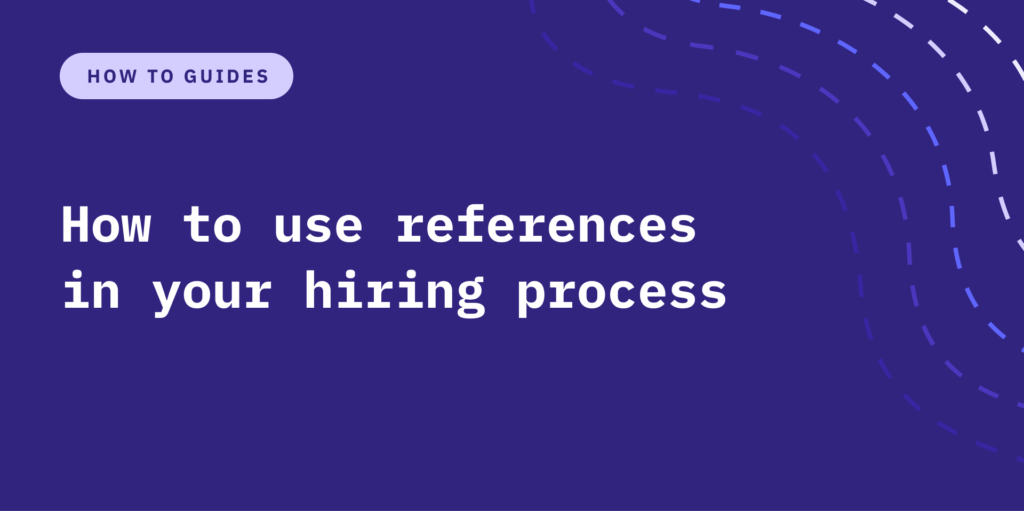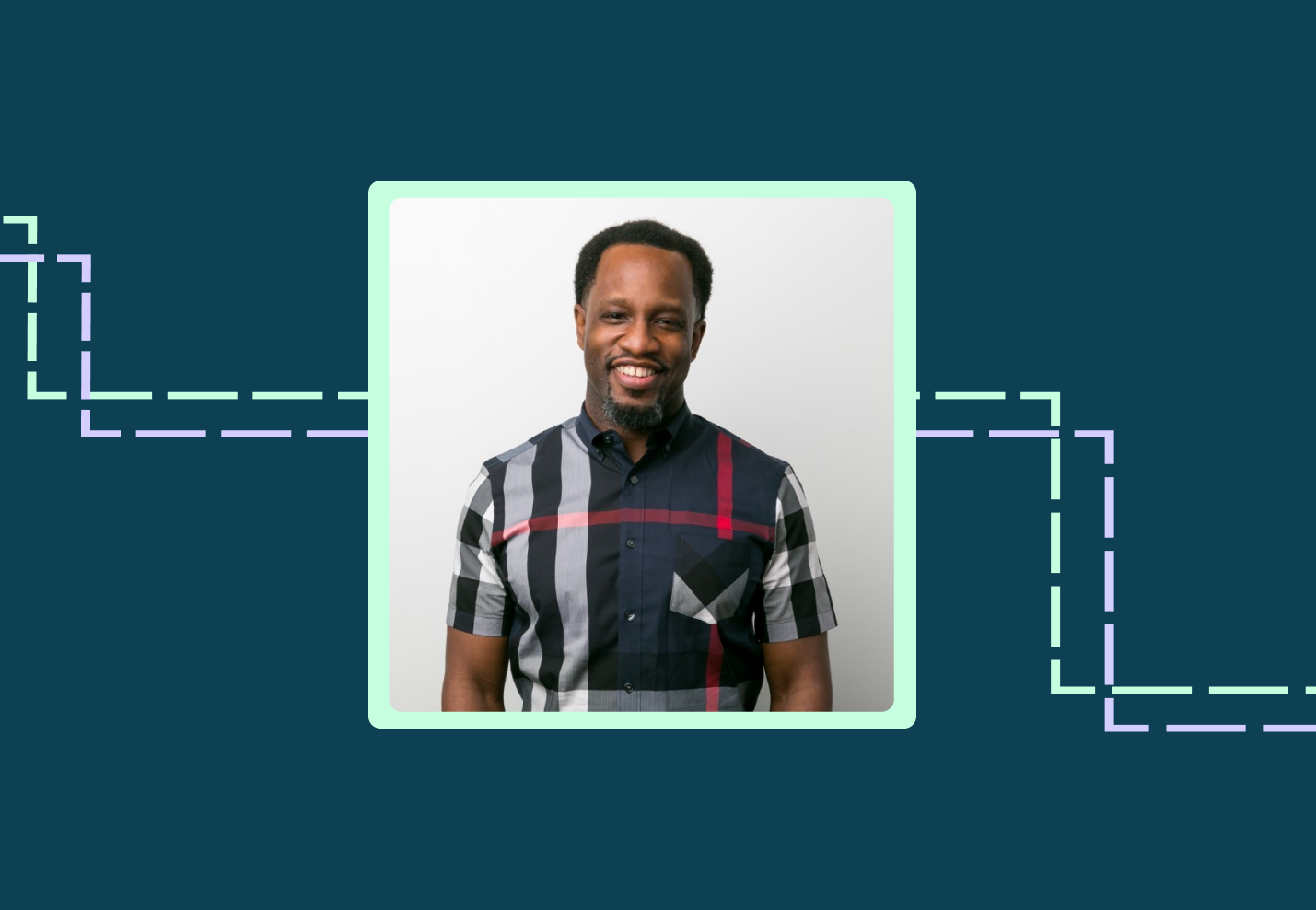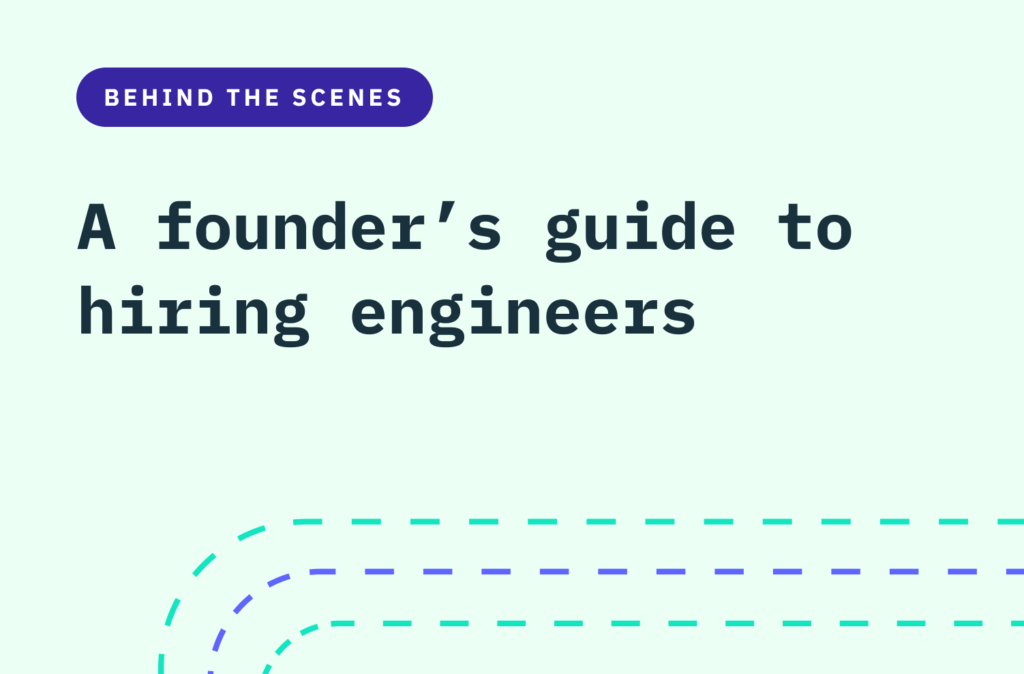Back to blog
How to use references in your hiring process
Company
Oct 4, 2022
Author: Julianna Lamb

Hiring, especially in the early stages of your company’s journey, can be a harrowing prospect. Not only will your early hires make a foundational and long-lasting impact for years to come, but a wrong hire could be extra costly when you have little margin for error as a small team.
Several months ago, I wrote up a founder’s guide to hiring engineers, and in it raised the importance of making references as a part of the hiring process. In this post, I wanted to dive a little deeper into how you can go about using hiring references when building out your team.
Why references?
As thorough as your interviews may be, only so much can be gleaned about a candidate through a few hours spent with a couple interview panelists. As discussed in this Harvard Business Review article, references are more than just a checkbox - they provide a unique window into what the candidate is like as a teammate. References allow you to gain valuable context about how a candidate collaborates with others and their ability to execute over long periods of time. Interviews are a small peek into a candidate’s ability to do the job, but hearing from people who’ve worked with them for years provides a more in-depth perspective.
How to approach references
There are two types of references: those supplied by the candidate and backchannel references. Depending on the number of backchannel references we might have access to, we’ll ask candidates to supply 2-3. Candidate-supplied references are generally extremely positive (the candidate hand-picked them after all), so any candidate-supplied references that aren’t a glowing recommendation can be illuminating, but expect most to be fairly straightforward and positive.
For backchannel references, we prefer to make sure the candidate is aware that we’ll be contacting some references, so we tell them so explicitly. We typically say something like the following:
We'll do a back channel reference and reach out ourselves — we know this can sound a bit unconventional because many companies aren't always upfront that they do this, but we think it's important to be transparent. We want to be particularly sensitive not to reach out to anyone where it might create issues for you if they know you're considering new roles - is there anyone (or groups of people) that we should definitely not reach out to?
When reaching out to a candidate reference, your objective is to get a holistic view of your candidate’s past experience (both professionally and personally) as efficiently and concisely as possible, out of respect for the reference’s time. With that in mind, there are a few topics you’ll want to cover:
1. Context on the environment
If you’ve had experience working at multiple companies, you’ll know that workplace culture can vary significantly, and it’s critical to understand this backdrop when evaluating your candidate. Whether it’s organizational and team structure or other cultural quirks, be sure to ask your reference to establish this workplace context.
- What was/is the workplace/organizational culture like at your company? What adjectives would you use to describe it?
Next, you’ll want to gauge your candidate’s past performance, and a crucial part of this is understanding the reference’s relationship to the candidate so that you can get a sense of how their roles interacted, what projects they may have worked on together, the amount of time they’ve worked together, etc.
- What was your relationship with the candidate? (follow-ups: How long have you known the candidate? Did you share any projects? When did you most recently work together?)
2. Work quality and performance
Now that you’ve gathered context on how the reference and candidate have worked together in the past, you can move on to the quality of your candidate’s past work and how they performed. As much as possible, look for concrete examples.
- What stood out most about their job performance when you worked together? Can you offer an example?
- Can you describe an instance where they took initiative?
- How would you compare them to others at the same level?
Your interview process likely already evaluates candidates on their “values” fit, so you’ll want to validate that your candidate will in fact work well with your team’s operating values, and that their approach to teamwork is positive and collaborative. Take some time to dig into how the reference’s experience with your candidate resonated at a more personal level.
- What stood out about their character? Can you offer an example?
- Would you want to work with them again?
3. The most insightful question
The most insightful question is one that requires the reference to put a hard number on the candidate’s performance, but the interesting part of this question is the follow-up question “what would it take for them to move up one point?” Specifically the question goes:
- On a scale of 1-10, how would you rate their performance? Most importantly, what would it take for them to move up one point?
This question is illuminating in a few ways. It requires the reference to succinctly address any weaknesses and do so in a way that gives the reference the opportunity to frame weaknesses as growth areas while still being honest about what holds the candidate back. We find that the level of honesty we get in response to this question is on a different level than any other piece of the reference call. The score itself is generally not very meaningful but can occasionally be insightful. Usually, references answer something in the 7-9 range; and anything below a 7 tends to be a red flag, especially for a reference supplied by the candidate.
4. Ensuring success in their new role
Lastly, we’re all human and everyone has areas they can improve in, so you’ll want to ensure your candidate has the best chance at succeeding once they onboard and ramp up. References are a rare opportunity to dig beneath the surface and get a more objective perspective on your candidate’s strengths and weaknesses. Try to understand what they truly excelled at in past roles, and see how you can set them up for success once they join.
- What advice would you give this candidate to help them excel in a new role?
As a last step, consider asking the reference whether there are any other references they would recommend speaking with - so take advantage of their network if you can!
Hiring is already an intensive process that you’re likely pouring significant time and resources into - be sure you’re not overlooking the last mile in the process by treating references as just a checkbox. It’s an invaluable tool that’s all the more crucial when you’re an early stage startup to ensure that you’re getting the most out of your new hires. Have more questions on hiring? Don’t hesitate to reach us at startups@stytch.com if you're looking for more advice and guidance!
Authentication & Authorization
Fraud & Risk Prevention
© 2025 Stytch. All rights reserved.


